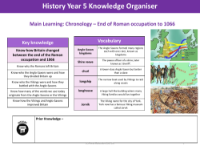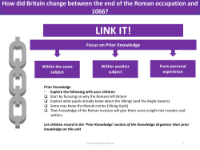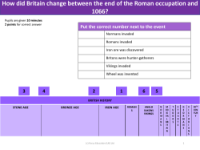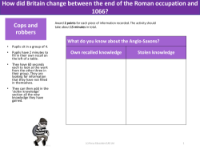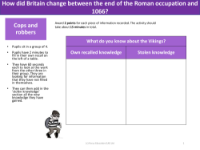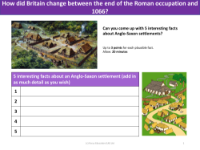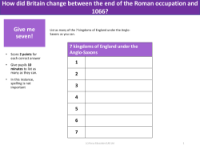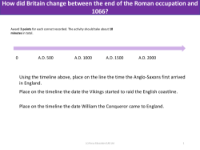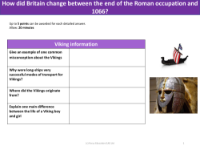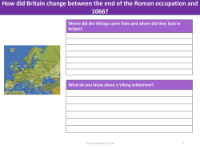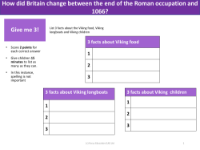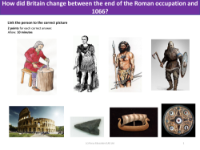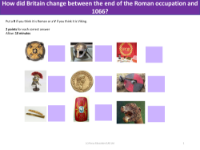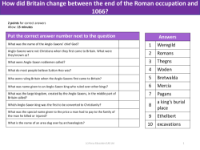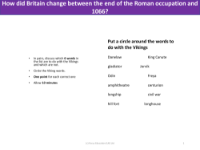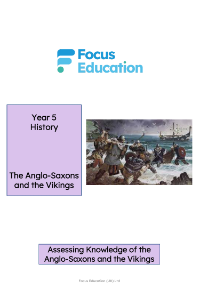True or False - Ancient Britain
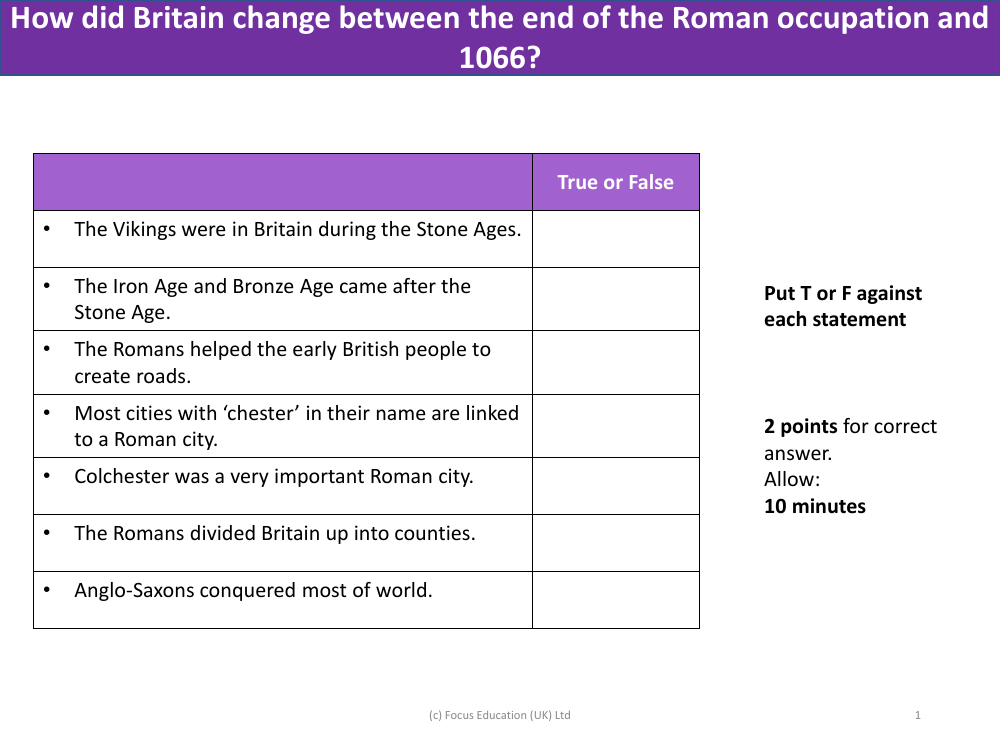
History Resource Description
False - The Vikings were not in Britain during the Stone Ages. They arrived much later, around the late 8th century AD, which is many millennia after the Stone Age period. True - The Iron Age and Bronze Age did indeed come after the Stone Age. The Stone Age is typically followed by the Bronze Age, which is then succeeded by the Iron Age. True - The Romans did help the early British people to create roads. They constructed a network of roads that were used for military and trade purposes, many of which laid the foundations for Britain's modern roadways. True - Most cities with 'chester' in their name are linked to a Roman city. The term 'chester' comes from the Latin word 'castrum', meaning a fort or military camp. True - Colchester was a very important Roman city. It is often cited as the oldest recorded town in Britain and was significant during Roman times. False - The Romans did not divide Britain up into counties. The current county system evolved over time and was significantly shaped during the Anglo-Saxon and Norman periods. False - The Anglo-Saxons did not conquer most of the world. They established control over much of what is now England, but their influence did not extend globally.
In the period between the end of Roman occupation and the year 1066, Britain underwent significant changes. The departure of the Romans in the early 5th century led to a power vacuum that was filled by various groups, including the Anglo-Saxons, who established several kingdoms across the land. The cultural and political landscape of Britain transformed as these new settlers brought their own customs, language, and governance structures. The Viking invasions also played a crucial role in shaping medieval Britain, leading to further conflicts and the eventual unification of England under kings such as Alfred the Great and later, Æthelstan. The Norman Conquest of 1066 marked the end of this period, bringing about another profound shift in Britain's governance, culture, and societal norms.

